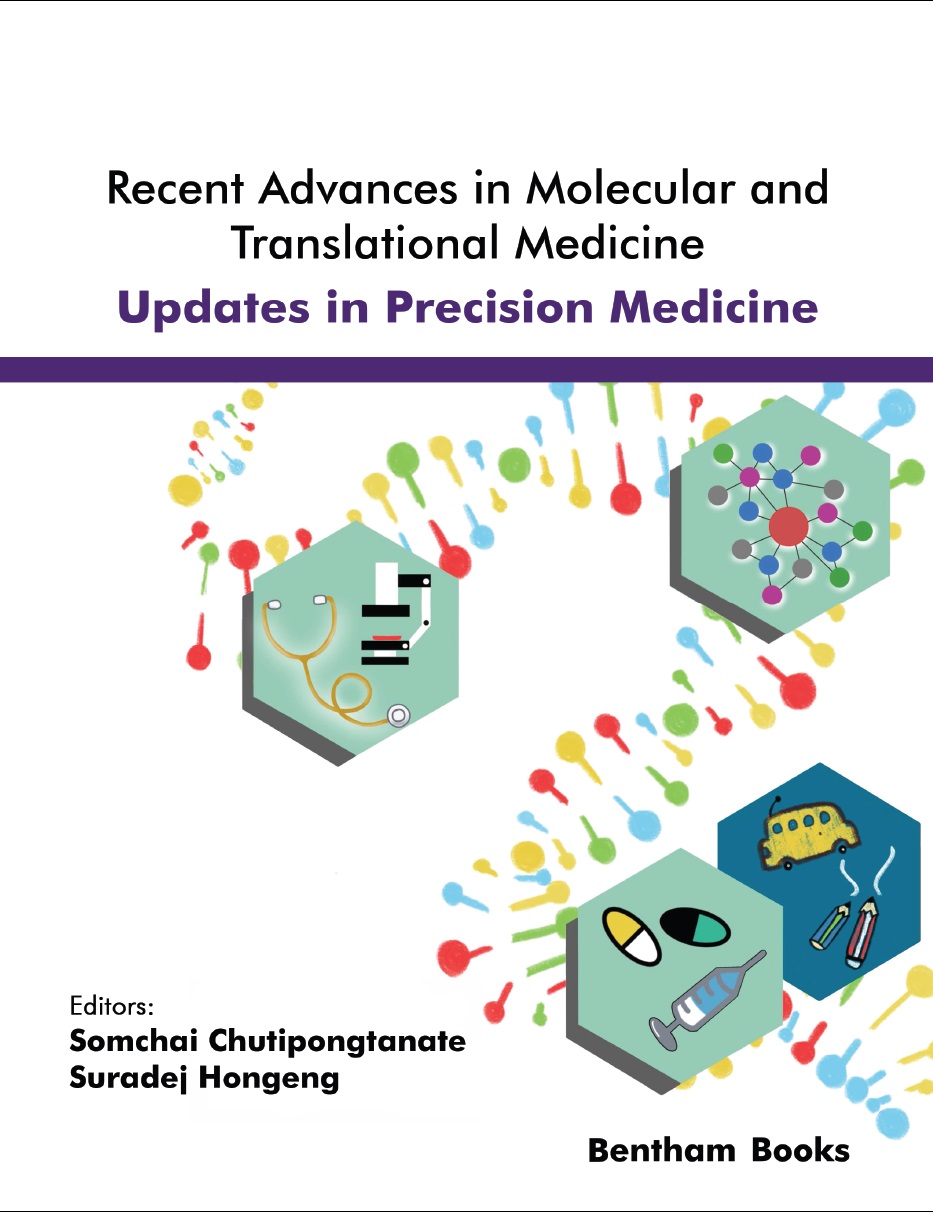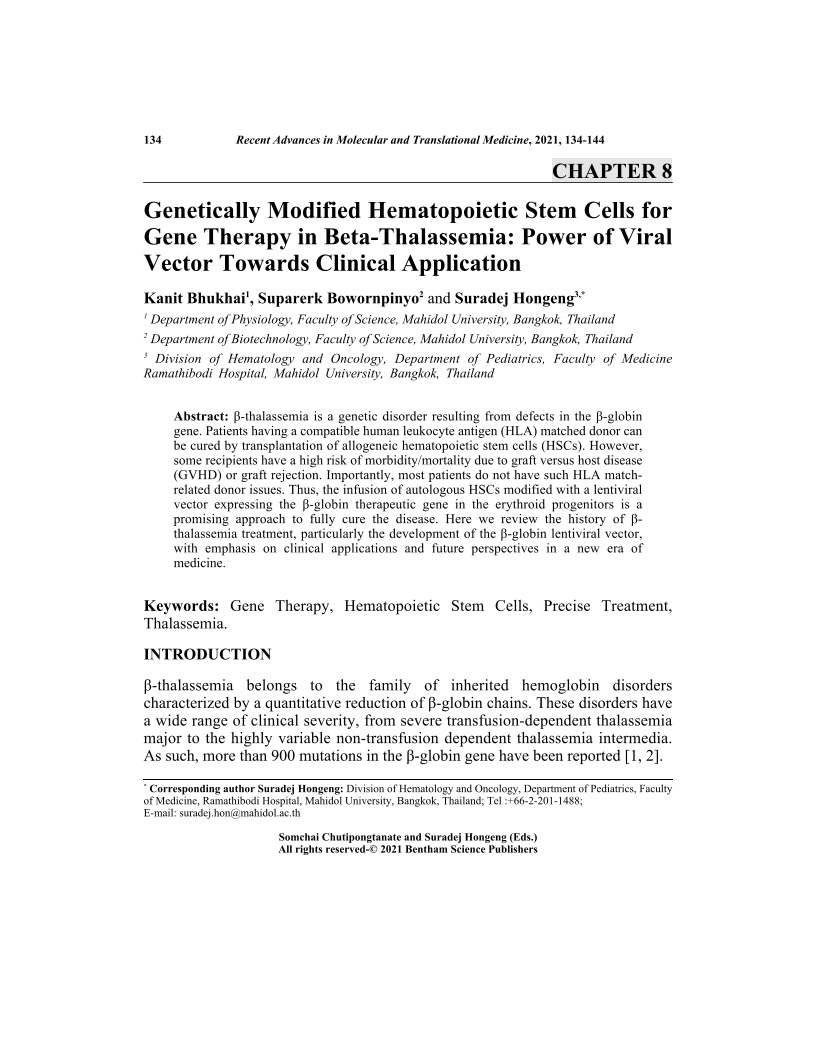Genetically Modified Hematopoietic Stem Cells for Gene Therapy in Beta-Thalassemia: Power of Viral Vector Towards Clinical Application

- Authors: Kanit Bhukhai1, Suparerk Bowornpinyo2, Suradej Hongeng3
-
View Affiliations Hide Affiliations1 Department of Physiology, Faculty of Science, Mahidol University, Bangkok, Thailand 2 Department of Biotechnology, Faculty of Science, Mahidol University, Bangkok, Thailand 3 Division of Hematology and Oncology, Department of Pediatrics, Faculty of Medicine Ramathibodi Hospital, Mahidol University, Bangkok, Thailand
- Source: Recent Advances in Molecular and Translational Medicine: Updates in Precision Medicine , pp 134-144
- Publication Date: December 2021
- Language: English
Genetically Modified Hematopoietic Stem Cells for Gene Therapy in Beta-Thalassemia: Power of Viral Vector Towards Clinical Application, Page 1 of 1
< Previous page | Next page > /docserver/preview/fulltext/9789815036756/chapter-8-1.gif
β-thalassemia is a genetic disorder resulting from defects in the β-globin gene. Patients having a compatible human leukocyte antigen (HLA) matched donor can be cured by transplantation of allogeneic hematopoietic stem cells (HSCs). However, some recipients have a high risk of morbidity/mortality due to graft versus host disease (GVHD) or graft rejection. Importantly, most patients do not have such HLA matchrelated donor issues. Thus, the infusion of autologous HSCs modified with a lentiviral vector expressing the β-globin therapeutic gene in the erythroid progenitors is a promising approach to fully cure the disease. Here we review the history of β- thalassemia treatment, particularly the development of the β-globin lentiviral vector, with emphasis on clinical applications and future perspectives in a new era of medicine.
-
From This Site
/content/books/9789815036756.chapter-8dcterms_subject,pub_keyword-contentType:Journal -contentType:Figure -contentType:Table -contentType:SupplementaryData105

